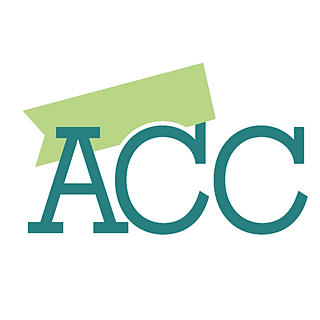CHASSE Helps Camp Cooper Kick Off $2.7 Million Phase One of Extensive Master Plan Renovation with Groundbreaking Celebration
- Arizona Contractor & Community
- Feb 7, 2024
- 3 min read
The Cooper Center for Environmental Learning – known as Camp Cooper to the Tucson community and currently celebrating its milestone 60th anniversary throughout 2024 – came together with Tucson Unified Superintendent Dr. Gabriel Trujillo and UArizona College of Education Dean Berry, camp staff, donors, and partners including CHASSE Building Team and Natural Building Works to break ground on its new state-of-the-art restroom facilities on February 2, its first renovation since the mid-’60s and phase one of the Camp Cooper Master Plan. Once complete, the multi-month, sweeping renovation will include the construction of a new building with composting toilets and waterless urinals, while the existing building will be renovated into a shower house. The project will also include other sustainable features, such as new solar panels, outdoor classroom space, greywater systems for shower wastewater and 23,213 gallons of rainwater harvesting to grow shade trees and other natural vegetation nearby.

“Since 1964, Camp Cooper has taken pride in teaching students about ecological understandings and deepening feelings for nature by providing hands-on, research-based programs in Science and Earth education, creating lifelong memories and inspiring learners of all ages to live more lightly and sustainably on the Earth,” said camp director Colin Waite. “Our passionate team has worked diligently to design an atmosphere that aligns with our commitment to environmental education. The upgraded facilities will allow us to continue offering innovative education programs to students while also enriching their time here at Camp Cooper.”

This renovation is made possible through the philanthropy of the Cooper Center’s many charitable foundations, local businesses, corporations and caring individuals including lead donors Peggy and Steve Goulding, Tucson Electric Power and parent company Fortis, Tucson Foundations, Ruth McCormick Tankersley Charitable Trust, Marshall Foundation, Tohono O’odham Nation 12% Gaming Distribution, Southwestern Foundation for Education and Historical Preservation and the UArizona foundation. Future phases of renovations at Camp Cooper, including upgraded sleeping cabins, an expanded indoor classroom, office space and a commercial kitchen for sustainable food service, will be completed in the next three to five years with funding through the recently passed Tucson Unified School District bond and additional contributions.
“Upgrading Camp Cooper will allow us to better serve students with our programs and set our facilities as a sustainable model for Southern Arizona,” says Camp Cooper program coordinator Mariah Kuehl. “We’re excited to share the wonders of our Sonoran Desert classroom with a larger audience, thanks to these much-needed renovations.”

The Cooper Center team is reconfiguring its programs to run around the construction site and will include modifications such as utilizing different path entrances, scheduling around the noisier periods of the renovation and using a full-service, portable bathroom trailer with handwashing stations. The educators are confident that students will still have an impactful experience at camp and will be working with its main mission in mind – fostering a love for nature and environmental awareness.
About The Cooper Center for Environmental Learning: The Cooper Center for Environmental Learning is a “living classroom” in Tucson’s desert foothills, run by the UArizona College of Education in partnership with TUSD. Located on 10 acres of land in the Sonoran Desert, the Cooper Center offers innovative teaching methods and a supportive atmosphere that fosters personal growth as well as a lifelong understanding of the importance of nature. Camp Cooper’s team makes it a priority to guide people of all ages to live more lightly on Earth through the use of proactive, research-based programs in both science and Earth education. Learn more at the Camp Cooper website and in this video.





Comments